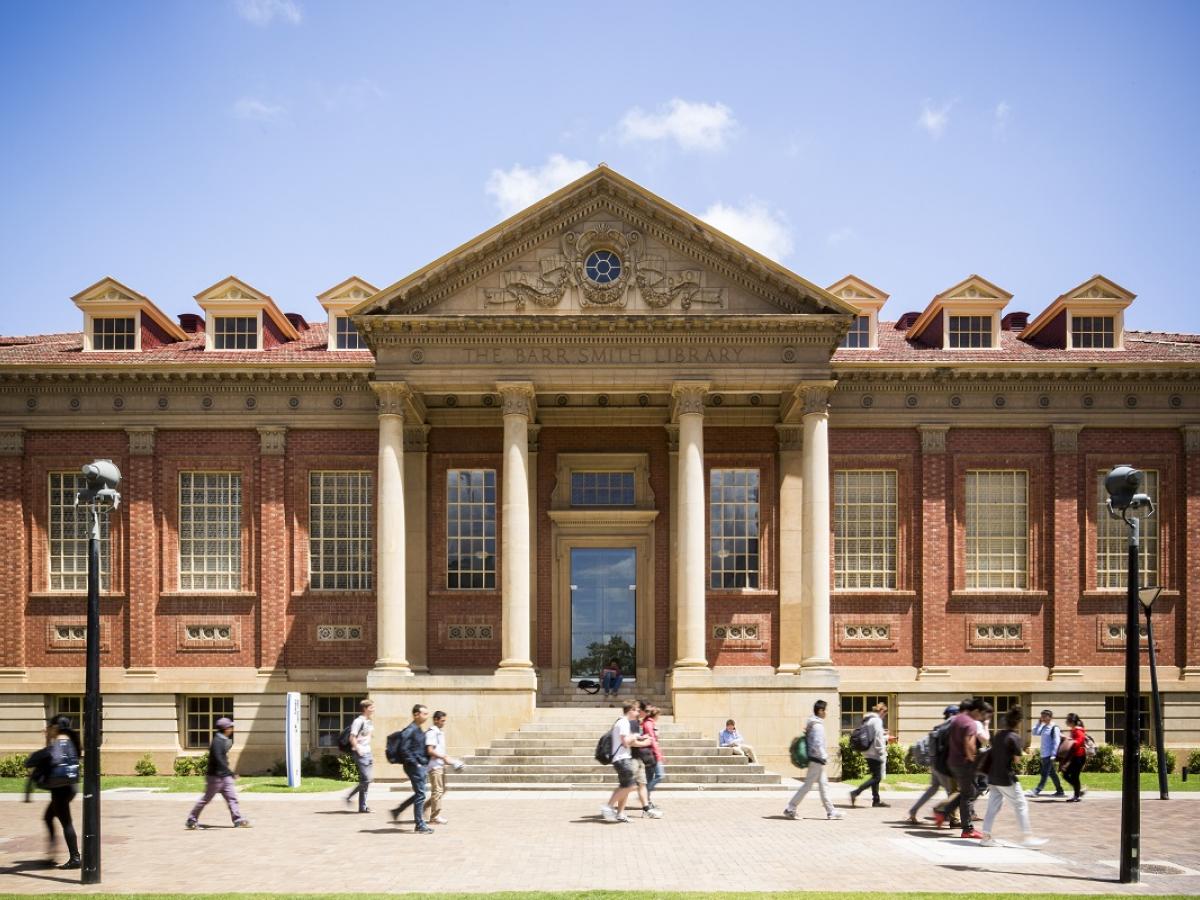
Fourteen grants totalling $7,269,318 have been awarded to University of Adelaide researchers from the Federal Government to continue their work in a range of important areas including health, wine and food production, pollution and nuclear physics.
The University's Deputy Vice-Chancellor (Research), Professor Anton Middelberg said: "The fourteen projects funded by the Australian Research Council will have a direct impact on people's lives, not just in South Australia but around the world.
"Our world-class community of researchers continue to undertake work at the University which aims to solve some of society's most pressing challenges, and helps to shape the future of our nation and its knowledge base."
The 2023 Australian Research Council (ARC) Discovery Projects - Round 1 awarded to the University of Adelaide are:
Professor Lisa Butler will lead a team that aims to understand how male sex hormones, or androgens, affect the amount and metabolism of fats in normal body tissues. $614,000 awarded.
Dr Fiona Whelan's team aims to address the need for new small molecule biosensing capability in diverse fields including food and wine production, environmental monitoring, biocatalysis, and diagnostics using a synthetic biology approach. $522,724 awarded.
Associate Professor Yan Tan will lead a team that aims to unravel China's changing internal migration: its patterns, causes and policy implications. $355,221 awarded.
Professor Dabing Zhang's team will aim to investigate new temperature-responsive factors that regulate cereal grain development to protect grain production under heat stress. $748,474 awarded.
Professor Shaobin Wang's team will investigate new cutting-edge technology which will be integrated at low cost into waste recycling and wastewater treatment plants. New green catalysts will be developed that can remove persistent organic pollutants in water without producing large amounts of toxic and hazardous wastes. $530,953 awarded.
Professor Frances Baum's team will examine how public policies relating to food can be made healthier. The project will examine Australian agriculture and food processing, manufacturing and marketing and the environmental impacts of these sectors. $602,000 awarded.
Professor Shizhang Qiao will lead a team that will undertake a project that aims at sustainable and efficient production of methanol and ethylene glycol. This will be achieved via development of revolutionary electrocatalytic processes that use renewables as energy input, water as oxidising agent and carbon dioxide-derived intermediates as feedstock. $714,888 award.
"The fourteen projects funded by the Australian Research Council will have a direct impact on people's lives, not just in South Australia but around the world. Our world-class community of researchers continue to undertake work at the University which aims to solve some of society's most pressing challenges, and helps to shape the future of our nation and its knowledge base."The University's Deputy Vice-Chancellor (Research), Professor Anton Middelberg.
Professor Ivan Nagelkerken's team will assess the resilience of temperate fish species to climate change. An advanced food web model will be developed to forecast changes to fisheries production in a future world. $510,893 awarded
Professor Anthony Thomas's team will undertake a project that will build on work already started at the quark level which has derived a theory of nuclear structure. The project will aim to advance this revolutionary new approach to the theory of nuclear structure to the next level by exploring its predictions for a number of outstanding questions in modern nuclear physics. $387,324 awarded.
Professor Martin Lambert will lead a team that aims to calm water distribution networks hydraulically to improve their performance using smart sensors. Their work aims to reduce burst rates of pipes, extend their life, and improve their operation and design. $390,945 awarded.
Professor Steven Cooper's team will undertake a project that utilises a unique Australian model system based on multiple, independently-evolved subterranean water beetles to explore the adaptive and regressive changes in the genome that occur when surface species colonise subterranean habitats. $426,591 awarded.
Dr John Bruning's team will undertake a project that will provide an understanding of the environmental threat of pollutants to Australia's unique wildlife. They will examine how contamination of waterways with compounds that disrupt hormone in aquatic species function is a major environmental problem and threat to the health and fertility of animals. $563,171 awarded.
Professor Peng Bi will lead a team that aims to construct a national picture of the impact of extreme heat on the health outcomes of older people and associated healthcare costs, and assist in minimising the health risk and the costs from extreme heat of this vulnerable group. $461,134 awarded.
Associate Professor Benjamin Binder will lead a team that aims to provide greater insight into the formation of yeasts, which despite being one of the most studied organisms in biology, are not fully understood. $441,000 awarded.
More details about the 2023 Australian Research Council (ARC) Discovery Projects - Round 1 are available including a full list of all the researchers involved in each three-year project.






